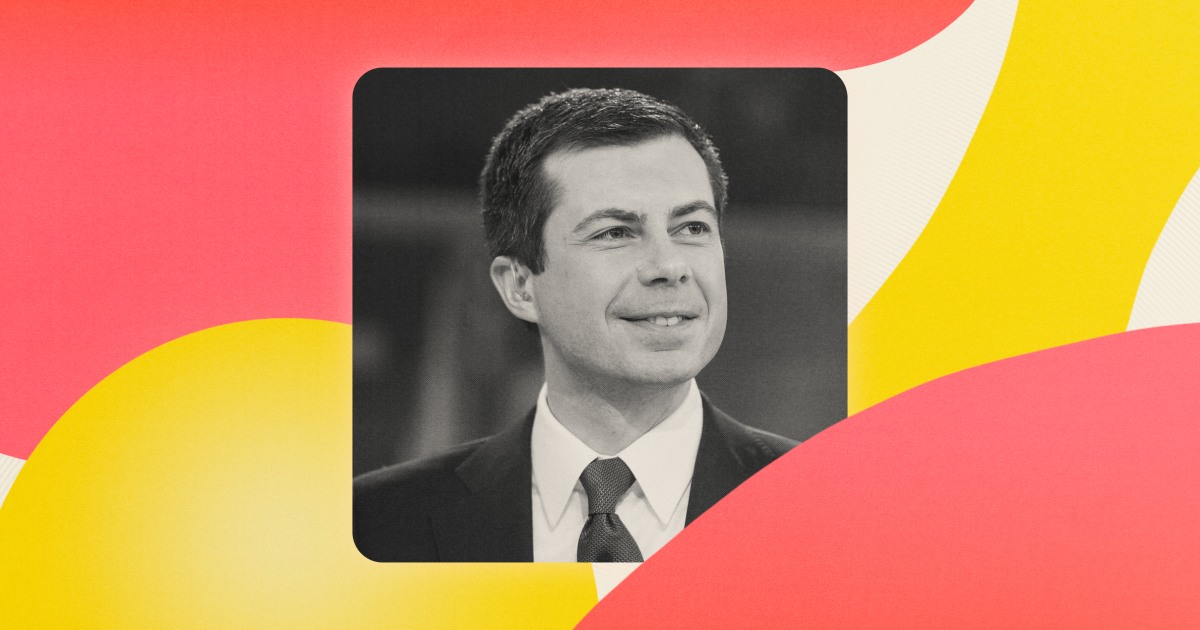
[June is Pride Month, and this year we’re celebrating by honoring 30 LGBTQ firsts. To see the full list, visit nbcnews.com/pride30.]
Pete Buttigieg wasn’t the first openly gay candidate in a major political party to run for president. That honor went to Fred Karger, the California political consultant who launched a long-shot campaign during the 2012 Republican primary.
Karger failed to secure a single delegate and was denied invitations to any of the debates. Buttigieg (narrowly) took the Iowa caucuses, becoming the first gay candidate to win a primary contest, and he performed well in New Hampshire.
Their success and party affiliations aren’t the only differences between the two men: Karger was a wealthy 62-year-old former actor who donated almost $6 million of his own money toward his campaign and bragged that he was in the race specifically “to throw a wrench into Romney’s run,” referring to Mitt Romney, the eventual Republican nominee.
Buttigieg was the 38-year-old former mayor of South Bend, Indiana — the youngest candidate in a primary with four candidates over 70. He was also a graduate of Harvard and Oxford, a Rhodes scholar, a polyglot and a Navy lieutenant who saw combat in Afghanistan. Buttigieg campaigned on health care and immigration reform, addressing climate change and earmarking $1 trillion for infrastructure projects.
Buttigieg bowed out of the race in March 2020, but it wouldn’t be long before he scored another political milestone: In February, he became the first openly LGBTQ presidential Cabinet member to be confirmed by the Senate. (President Donald Trump named Richard Grenell, who is openly gay, acting director of national intelligence for four months in 2020, but Grenell was never confirmed by the Senate for that role.)
Now 39, Buttigieg is the youngest person to have led the Transportation Department and the only primary rival Joe Biden tapped to serve in his administration after he picked Kamala Harris as his running mate. It was Harris — the first woman and the first Black and South Asian vice president — who swore Buttigieg in to office.
“You can really feel the history swirling around us when the vice president was swearing me in with my husband, Chasten, at my side,” he said this year.
“There have been times in living memory where you couldn’t have any job in the federal government if you were gay,” he said. “Thousands of people lost their jobs, lost their livelihoods because of that kind of discrimination. So it’s a really encouraging sign about the change that can happen but also a reminder that we’ve got a long way to go.”
He’s rolling up his sleeves to promote Biden’s $1.7 trillion plan to revamp America’s long-neglected infrastructure, including $88 billion for roads, rail and other transportation. While it has been a hard pill for Senate Republicans to swallow, it appears, as in the presidential race, that Buttigieg’s sexuality isn’t part of the debate.
“The great thing about public service is that you have an opportunity to deliver,” Buttigieg said in February. “If you do a good job, nobody cares how old you are, nobody cares if you’re gay. Nobody cares about anything in your life so much as you’re making their lives better.”

